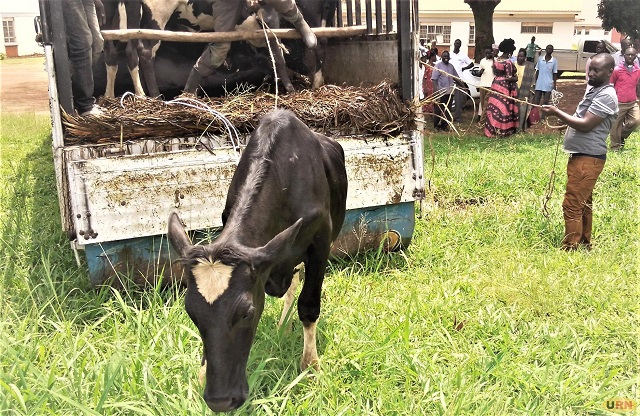
Nebbi, Uganda | THE INDEPENDENT | Nebbi district authorities have suspended the sale of meat and animal products following an outbreak of Foot and Mouth Disease (FMD). According to officials in the veterinary department, the first FMD cases were reported in Kucwiny sub-county, Lee Parish, towards the end of November last year, where 26 animals were confirmed dead in the early stages of the outbreak.
Dr. Abedkane Willian, the Nebbi District Veterinary Officer, mentioned that although FMD cases have decreased in Kucwiny, the disease has spread to nearby sub-counties of Alala and Atego due to the booming animal trade during the festive season. “We have currently quarantined the sale of meat and restricted mass slaughter of animals to control the economic impacts that may arise from the disease outbreak on farmers,” Dr. Abedkane stated.
He explained that, while monitoring the spread of the disease closely, a temporary quarantine has been imposed in the district, with stakeholders strongly advised not to move animals from the affected areas. He also urged farmers whose animals have not been infected to alter their grazing patterns. “Technically, we have advised those trading in animal products to remain calm while the situation is being handled to avoid the loss of large numbers of animals. Public health must be prioritized over economic impacts in such outbreaks,” Dr. Abedkane added.
Reports from the veterinary department indicate that the clinical disease has primarily affected cattle, with a total of 1,523 cattle spread across 10 farms. Of these, 1,066 cattle have been confirmed infected, and 163 calves have died since the outbreak was reported on November 27, 2024. Alex Okumu, a farmer from the Kucwiny sub-county, expressed the financial strain the quarantine has caused, saying that many parents, who depend on animal sales to pay school fees, are unable to send their children back to school due to the restrictions.
“The current situation is very difficult for parents who rely solely on animals for school fees,” Okumu said. Jalum Geoffrey, Chairman of the Nebbi Butchery Association, argued that butchers should be allowed to slaughter animals despite the outbreak, as they purchase their animals directly from the Lira district, ensuring they are transported straight to the abattoir without entering local communities.
“Since the quarantine was imposed due to the outbreak of FMD, life has become very hard for us, and servicing loans has become more complicated because we cannot slaughter animals,” Jalum said. “Some of us have even gone back to our villages because there is no business, and life has become more of a gamble due to financial pressure.”
***
URN
 The Independent Uganda: You get the Truth we Pay the Price
The Independent Uganda: You get the Truth we Pay the Price



